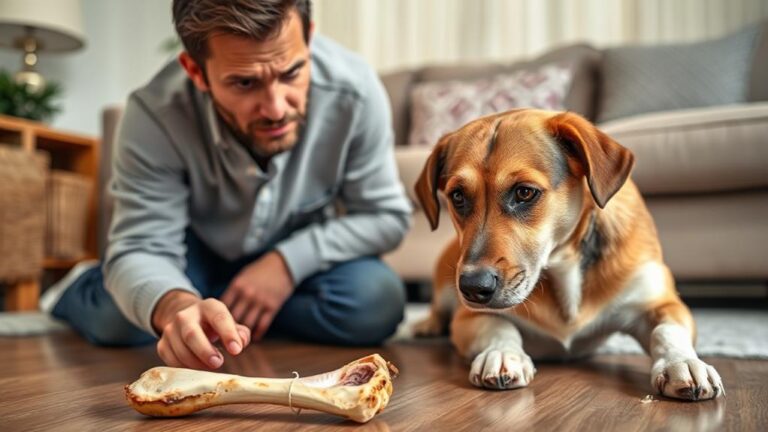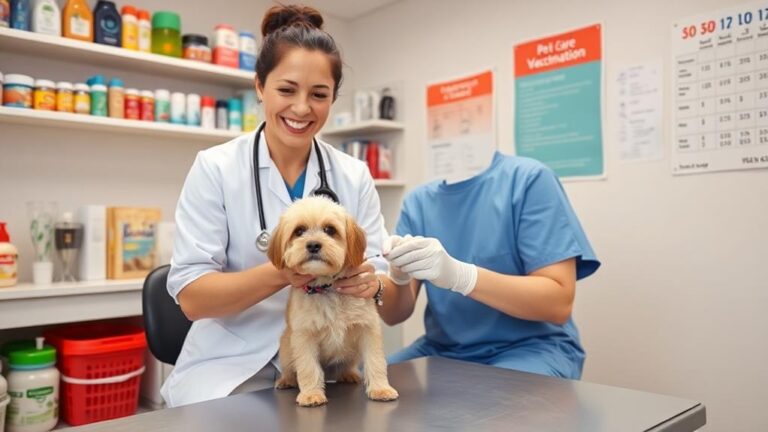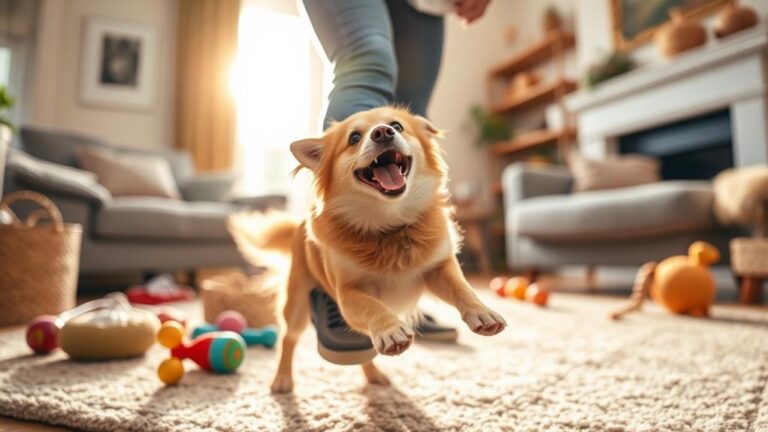If your dog ate a cooked pork bone, you need to act fast. Cooked bones can splinter and cause serious injuries to your dog's digestive tract. First, keep an eye on your pup for 24 hours. Look for signs of distress like vomiting, diarrhea, or straining to go to the bathroom. If you notice any of these symptoms, reach out to your vet immediately. Never try to induce vomiting without professional advice, and avoid home remedies. Plus, it's always best to consult your vet about safe bone options in the future to keep your furry friend happy and healthy.
Risks of Pork Bone Ingestion
When your dog eats a cooked pork bone, it can lead to serious risks that you should be aware of.
Cooked bones splinter easily, which can cause lacerations in your dog's digestive tract. This isn't just uncomfortable; it can lead to severe internal injuries.
Additionally, pork bones can block your dog's intestines, making them vomit, drool excessively, or lose their appetite.
Risks of eating chicken bones are similar, as they can also pose life-threatening dangers to your pet.
Even if your dog seems fine right after eating, symptoms mightn't show up for hours. Keep a close eye on them for the first 24 hours.
If you notice severe symptoms like constant vomiting or signs of belly pain, don't wait. Get your dog to the vet immediately, as quick action can be lifesaving.
Digestive Processing of Bones
The journey of bone digestion in dogs can be quite complex and fraught with potential issues. When your dog eats a cooked pork bone, it's important to understand what might happen next.
Cooked bones can splinter and may not be easily digested. Risks of Eating Chicken Bones highlight that cooked bones can pose severe health risks. Here are some key points to take into account:
- Dog stomach acid can dissolve some bones, but cooked ones are brittle.
- It usually takes 10 to 24 hours for a dog to pass an ingested bone.
- Ingested bones can lead to serious intestinal blockages.
- Not all bones are safe; many can cause harm, especially when cooked.
Monitoring your dog after ingestion is essential. Look for any signs of distress or discomfort, as these could indicate complications.
Identifying Obstructions
Even after understanding how bones are digested, it's essential to keep an eye out for signs of obstruction if your dog has eaten a cooked pork bone. Watch for symptoms like vomiting, diarrhea, or a sudden drop in appetite. Abdominal tenderness could indicate serious issues, so don't ignore it. If your dog strains to defecate or passes only small amounts of feces, this may suggest a blockage. Additionally, behavioral changes like increased aggression when handled can point to discomfort.
| Sign of Obstruction | Description | Action Needed |
|---|---|---|
| Vomiting | Frequent and unproductive vomiting | Monitor closely |
| Diarrhea | Loose stools that may contain blood | Consult your vet |
| Abdominal Pain | Sensitivity when touching the abdomen | Seek immediate help |
| Straining to Defecate | Difficulty or minimal feces production | Urgent veterinary care |
Emergency Actions
If your dog chews on a cooked pork bone, you need to act quickly to guarantee their safety.
Start by watching for signs of distress, like vomiting, excessive drooling, or lack of appetite. If they ate the bone within the last two hours and aren't showing severe symptoms, you might consider inducing vomiting after giving them a small meal to coat their stomach.
However, for sharp bone fragments, rush to the vet right away. It's essential to be aware of potential health risks, as certain foods can cause significant issues for dogs, including overdose risks from medications like Benadryl.
- Monitor your dog closely.
- Don't try home remedies.
- Avoid giving any medications without vet advice.
- Seek immediate veterinary help if symptoms arise.
Prompt action can help prevent serious health risks, so don't wait! Your furry friend's health depends on it.
Safe Bone Practices
When it comes to keeping your dog safe, choosing the right bones is essential.
Opt for raw bones with bulges or lumps, as these are less likely to splinter and cause harm. Avoid processed or cooked bones, like pork, because they can become brittle and pose serious health risks.
Chicken necks and wings are also unsafe; they can choke your dog or cause intestinal blockages. It's a good idea to talk to your veterinarian about which bones are suitable for your pup.
Educating yourself on bone safety is vital for preventing health issues. Remember, the right choices can keep your dog happy and healthy while enjoying their chewing time!
Conclusion
If your dog ate a cooked pork bone, stay calm and watch for any signs of distress, like vomiting or difficulty eating. Cooked bones can splinter and cause serious problems, so it's always best to consult your vet. Remember, keeping raw bones or safe chew toys around can prevent these accidents in the future. Your dog's health is important, so take action quickly, and don't hesitate to reach out for professional help if needed.



